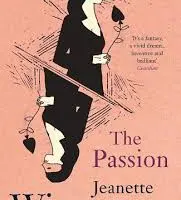Ice, by Anna Kavan
I’ve written before of how sometimes work, life generally, can wreck my reading of a book. A busy period, a week passes without a page turned, and suddenly a great book has become a chore. I don’t remember what’s going on or who the characters are or why the plot involves a chihuaha*. The book becomes staccato and dissolves into incoherence.
Ice got interrupted. It’s just over a 150 pages and took me over a month to read, which is not good going by any standard. Fortunately Ice embraces incoherence – the narrative is already fractured. Reading it when tired, reading it when the previous passages are only half-remembered, if anything works to its advantage.
In terms of plot and character Ice is both extremely easy and unusually difficult to describe. A man, some kind of spy or security operative, drives through an unnamed country. He’s seeking a woman with whom he used to have a relationship. He describes the woman throughout as the “girl”, but that says more about him than we ever learn about her. She is now with another man, and the protagonist wishes to take her from that other man.
So far so simple. Problems soon multiply though. In the opening chapter the woman is an old love of the narrator’s. The other man is her husband, a painter. The narrator visits them against a backdrop of unseasonal cold, cold he knows will only get worse until it blankets and kills the earth. His relationship with the woman, the other man, is ambiguous. Does she welcome the narrator’s presence? The husband is at first friendly, but soon appears vaguely threatening. Who is really at risk though, the narrator or the woman?
In what becomes a template for the rest of the novel the narrator loses contact with the couple, but determines to pursue the woman, to rescue her. He finds her on a ship leaving the country, but arrives too late to board. He desperately hires passage on the next ship out. They arrive at the next port, but suddenly they’re on the same ship. I stopped reading. I backtracked. Had he changed vessel? No. Did I misread it previously? No. Were they then on entirely separate ships, but now the same one and always have been on the same one? Yes.
That’s why this novel is both easy to describe and yet difficult too. Each section makes sense in its own terms, but the whole refuses to be pinned down to any single reality (“I was aware of an uncertainty of the real, in my surroundings and in myself.”). The logic here is that of dreams. He is following her on a separate ship. Scene. He is now on a ship with her, but on a different deck looking towards her. Scene. The transition is as unexplained as the transitions in dreams, which make sense when one is in the dream but none once one awakens.
Soon nothing is fixed. At this new town, this new country, the woman’s husband is waiting. He’s no longer her husband though, or even a painter. Now he’s the Warden. A military warlord. His relationship with the woman has become crueller, more abusive, but it’s recognisably the same relationship. They’re the same people, but their relationship to each other, to the world, has somehow slipped out of joint.
I described the narrative here as fractured. That’s one example, but the fracture lines run right through the text. The narrator has visions, remembers scenes at which he wasn’t present (“I had not seen all the things I remembered about her”). Sometimes the perspective shifts and we see him through the eyes of the other man or the woman, or perhaps we just see how he imagines them seeing him. The protagonist suffers from insomnia and is taking drugs that give him “terrible dreams”, but it would be facile (worse, boring) to ascribe all this to hallucination or fantasy.
Here, early on, the narrator is driving through steadily and rapidly worsening driving conditions:
For a moment, my lights picked out like searchlights the girl’s naked body, slight as a child’s, ivory white against the dead white of the snow, her hair bright as spun glass. She did not look in my direction. Motionless, she kept her eyes fixed on the walls moving slowly towards her, a glassy, glittering circle of solid ice, of which she was the centre. Dazzling flashes came from the ice-cliffs far over her head; below, the outermost fringes of ice had already reached her, immobilised her, set hard as concrete over her feet and ankles. I watched the ice climb higher, covering knees and thighs, saw her mouth open, a black hole in the white face, heard her thin agonised scream. I felt no pity for her. On the contrary, I derived an indescribable pleasure from seeing her suffer. I disapproved of my own callousness, but there it was.
At the end of his drive the narrator finds the woman at home with her husband. Plainly that episode didn’t happen then. She wasn’t naked in the snow. She wasn’t entombed by rapacious ice. It didn’t happen. Within the narrative though it’s as real, as unreal, as anything else. He’s driving. He sees her and she’s devoured by ice. He’s driving and finds her at her home. Scene. Scene. Scene.
What then is consistent? What makes this a novel and not just a random collection of incidents that don’t hang together? When you have no plot and no reliable narrative what else is there but character and writing?
The narrator sees himself as the woman’s rescuer. He sees her as threatened, by the Warden, by the ice which gets ever closer and which is a harbinger of an ambiguous but not uncertain apocalypse, by her own innate victimhood. He sees himself as wanting to protect her, give her safety in a world which it is increasingly clear is literally ending. He sees the Warden as mistreating her, clutching her thin wrists with such force that they bruise, imprisoning her, raping her even.
As the quote above shows though, like everything else here it’s not that simple. In his fantasies the narrator sees her beaten, abused. Does the Warden treat her as the narrator thinks, or does he just picture him doing so? Is the narrator a rescuer, or is his image of the Warden in fact a reflection of his own reality? Possessive, jealous, obsessive. Is the narrator trying to save the woman, or to control her? At times it’s not even certan that the Warden and the narrator are different people. From the woman’s perspective they might as well not be. Either way she’s reduced to property.
Kavan is doing something genuinely interesting here. Ice is a story of male sexual obsession. The woman, the girl as she’s referred to, is the only constant point in the book. She remains unchanged, while reality itself slides around her. As a reader though we never see her directly. We see instead the narrator’s idea of her. Perhaps she doesn’t change because she isn’t herself real. She’s unreal not in the sense that there isn’t a woman within the narrative, but in the sense that the narrator never sees that woman. He only sees his construct of her. Fragile, defenceless, vulnerable, dependent.
Ice then for me was an exploration of male desire and female objectification, but that’s far from the only possible reading. Anna Kavan, famously, was a heroin addict and the novel is run through with apocalyptic imagery of snow smothering towns and ice clogging up seas and harbours. The ice can be seen as a metaphor for heroin deadening experience, crushing down all feeling except the obsessive quest for something that even when attained soon slips away and must be chased all over again. On another reading the apocalypse is, as all apocalypses are, personal. An apocalypse is after all death, death for the individual and for the world, but every death is of course its own apocalpyse.
Kavan’s descriptions of a world slowly choking in ice are marvellous. She conjures scenes of panicked evacuation, of lifeboats capsising as ill-prepared middle-class refugees desperately try and find some safety on ships that flee before the relentless glaciers. She portrays towns locked in snow and bloody civil-war, only for the narrator to look back and see the whole town intact, bathed in sunshine, no perception reliable. This is a grim and paranoid book.
I should have to start searching for her all over again. The repetition was like a curse. I thought of placid blue seas, tranquil islands, far away from war. I thought of the Indris, those happy creatures, symbols of life in peace, on a higher plane. I could clear out, go to them. No, that was impossible. I was tied to her. I thought of the ice moving across the world, casting its shadow of creeping death. Ice cliffs boomed in my dreams, indescribable explosions thundered and boomed, icebergs crashed, hurled huge boulders into the sky like rockets. Dazzling ice stars bombarded the world with rays, which splintered and penetrated the earth, filling earth’s core with their deadly coldness, reinforcing the cold of the advancing ice. And always, on the surface, the indestructible ice-mass was moving forward, implacably destroying all life. I felt a fearful sense of pressure and urgency, there was no time to lose, I was wasting time; it was a race between me and the ice. Her albino hair illuminated my dreams, shining brighter than moonlight. I saw the dead moon dance over the icebergs, as it would at the end of the world, while she watched from the tent of her glittering hair.
The Indris mentioned there are a lemur-like species that the narrator spent time with on a pacific island. The Indris sing to each other, forming a harmony of life and warmth. The narrator constantly dreams of returning to them, but his search for the girl won’t permit that. He fantasises about a pre-lapsarian world, an escape from a colourless present, but however fast he drives the ice is never far behind and the girl never fully in grasp.
In a very real sense this is a work of science fiction, one in a recognisable tradition even. That’s not because it takes place in an unspecified future in the face of a wintry armageddon. It’s because it breaks reailty to explore concepts through metaphor and image. The most obvious comparators are Ballard and Christopher Priest (who writes an excellent foreword), perhaps Dick at a slight push, but also for me M John Harrison with his marvellous and strange Viriconium stories. There too reality shifts, follows mood rather than logic.
Priest categorises fiction of this kind as slipstream, and it’s a good word for it. He argues that “Slipstream literature is a response to science (and scientific effects), an exercise of human feelings about science, if not an understanding of it, but it is not an allegory.” That’s where Ballard comes in. Ballard’s apocalypses were never meant literally, rather they are psychogeographic. Kavan reflects her characters’ (perhaps her character’s) inner world in his outer one. The narrative is inconsistent because the narrator himself is. It makes as much sense as we do.
John Self of The Asylum first alerted me to Anna Kavan’s Ice, and he later reviewed it himself. That review is here and, as ever, is worth reading.
* Ice’s plot does not actually involve a chihuaha.














This seems interesting, but then again, I do enjoy reading books that border on the bizarre…
If you do then this certainly qualifies. It’s very much at the literary end of sf, so much so that if you didn’t call it such anyone not familiar with sf probably wouldn’t think to describe it that way. It’s actually though at the same time extremely readable. You just have to abandon consistency. Once you do that it’s a surprisingly easy read.
Right, I see you reviewed Nightwings at yours. Off to read that.
Nightwings was such an awesome book… it was one of those things that I stumbled upon by chance at a used book sale and ended up loving. I have to read more of his work at some point.
I also found your review amusing because I’m currently reading a review copy of a book that does have a random chihuaha and also lacks coherence. 😛
I’m definitely going to keep an eye out for “Ice” and pick it up if I come across it.
Despite the problems you identified (and I agree with), Nightwings is great.
More books should have random chihuahas.
So the narrator is unreliable, would you say?
Absolutely, but more profoundly so than that phrase would typically lead one to expect which is why I didn’t use it in the end.
Max, excellent review. I read Ice a year or so back and loved it. Your/Priests remarks towards the end about “slipstream” fiction pretty much sum up the SF I go for: Ballard, Dick.
“A response to science .. if not an understanding of it” Agree.
I don’t know Priest’s stuff. Any suggestions?
Not read any more of Kavan’s work. Will try Guilty next I think. Some of them are more conventional apparently.
It was never entirely clear to me what slipstream really is. But it makes sense in this case. When you mentioned the heroin addcition I suddenly thought of William S. Burroughs’ Naked Lunch and its fragmented story telling. Is it at all similar?
Laurence,
I’ve not read Priest for ages, so I’d struggle to recommend any. I should reappraise him actually. I’d heard some of Kavan’s were more conventional, and I was also considering Guilty as the next one.
Caroline, that’s actually a nice comparison. I’ve not read Burroughs in over 20 years so I don’t recall his style as well as I used to (at one point I read a lot of Burroughs), but we are in similar territory in some ways and had I thought of him I’d have included him in my list of possible comparators.
It takes me back actually to why I didn’t refer to an unreliable narrator. In Burroughs reality can break down within the individual scene. Here each episode makes sense on its own, just not next to each other. If you treat the narrator as unreliable, which he is, he’s so unreliable you’re left with no book at all. Clearly that doesn’t quite work, so you need to find another way of approaching it. That perhaps is Burroughsian (Burrovian?).
It’s part of a tradition of non-realist, arealist perhaps, fiction which has never had the same currency as realism/naturalism. Our critical language perhaps takes naturalism as the default, the natural even, leaving us perhaps not quite the right tools to discuss books that depart from that tradition.
was she a cut up fan ? with the jumping narrative like previous commenter said is something Burroughs did ,sayiung that at time it was written he was better known than now Max I love these quirky books not come accross this one before not reading johns blog much I wouldn’t ,all the best stu
Interesting question Stu. I don’t honestly know, but you could move several sections of the book around without ill effect. Like BS Johnson you’d want to keep the start and end fixed, but in between things could shift and arguably it would be in keeping with the book’s approach that they did.
By the way Stu, I was too busy at work to comment much on any of the Henry Green week posts, but I did read a lot of them and it was a great idea. Thanks for that.
Funny, I also thought of Naked Lunch when I was reading.
And Proust although the style is of course very different. Still, this passage made me think of him:
“We see instead the narrator’s idea of her. Perhaps she doesn’t change because she isn’t herself real. She’s unreal not in the sense that there isn’t a woman within the narrative, but in the sense that the narrator never sees that woman. He only sees his construct of her.” Very Proustian, you know when he describes Albertine.
Such books throw me off balance, I don’t understand them and it’s frustrating. But I should read some to make myself go out of my cartesian frame of mind. It’s healthy to stretch your mind beyond the usual limits.
PS: For my education, is Ice a slang word for heroin like snow for cocain?
Emma,
Once pointed out it’s a good reference. One of the nice things with blogging is when people point out these connections which one’s missed oneself. Good point on the Proust.
Writing this one up helped me understand it. On first reading the heroin metaphor seemed stretched to me, but as I wrote this piece I thought about his repetitive pursuit of one bright thing that never satisfied against a landscape of deadened sensation and it was obvious.
Ice as far as I know isn’t a slang word for heroin. That would perhaps be too helpful 🙂
That’s the good thing about blogging too: writing about the book makes you pause and see more of it. With this kind of difficult books, you even realize that you understood more than you thought.
Pingback: Winstons dad’s been to library « Winstonsdad's Blog
Sounds Interesting. From what I’ve read here I’m also reminded of Samuel Delany.
Regarding Christopher Priest, I’d recommend ‘Inverted World’ but that’s not nearly as surreal as ‘Ice’ seems to be.
I should revisit delany at some point. I suspect when I read him my expectations were too much that it would be traditional sf.
Inverted World always sounds fun, but I own The Prestige so will probably read that first. I’m also tempted by one of his early works, Fugue for a Darkening Island which again isn’t as surreal as this but deals in some very difficult themes.
Pingback: That Was The Year That Was: 2012 | Pechorin’s Journal
Pingback: Free, strong, safe. | Pechorin’s Journal
Max, I’ve been meaning to drop by for a while ever since I read ‘Ice’ in January and the current spell of snowy weather has reminded me to link back to say how much I loved it. I really liked the fractured narrative and dreamlike nature of the book. As you say, Kavan’s descriptions of this world are simply wonderful capturing the shimmering beauty of the ice alongside its chilling and dangerous nature.
I think you’re right in saying that there could be different ways to ‘read’ or interpret the narrative. I’d like to reread it at some point as I think my own view of it could shift with a second reading. I can see the way in which the narrative explores male desire and the pursuit of the female. You also mention that the ice could be seen as a metaphor for heroin. For me, I got the sense that parts of the fractured narrative might reflect Kavan’s own state of mind (bearing in mind she suffered from periodic episodes of mental illness, although these may have been in the past?). I was struck by how the girl comes across as fragile, vulnerable and often wary of the narrator, yet there are times when her mood and relationship with him seem to change quite quickly, suddenly shifting to one of dependence, trust even, possibly seeing him as her saviour. This made me wonder whether Kavan was reflecting her own state of mind through the girl and whether the girl’s relationship with the narrator could even be seen as a projection/reflection of Kavan’s relationship with heroin – capturing this mix of emotions and sudden shifts in mood and tone.
I’m so glad you reviewed this novel and included it in your books of the year as your eloquent review prompted me to give it a go! I’ll definitely reread this one and would like to read more of her work too. I’ve bought ‘Guilty’ and look forward to reading it.
Nice point on mental illness, I think you can sensibly make that reading. It really is a fascinating book isn’t it? I’m still very happy having made it one of my books of the year. I’ll be interested to hear how you get on with Guilty too.
Pingback: Guest Post: “The Quickening,” Michael Bishop (1981) | Science Fiction and Other Suspect Ruminations [Classic SF c. 1940-1979]
Pingback: Anna Kavan, 'Ice' - Tredynas Days
Pingback: On Teaching Anna Kavan’s Ice | Eiger, Mönch & Jungfrau